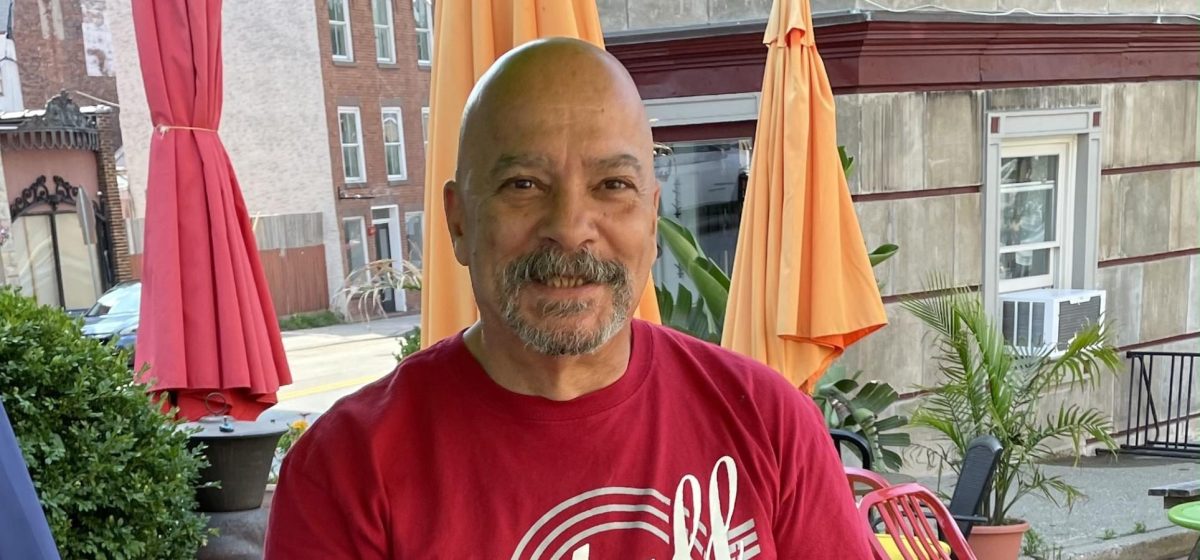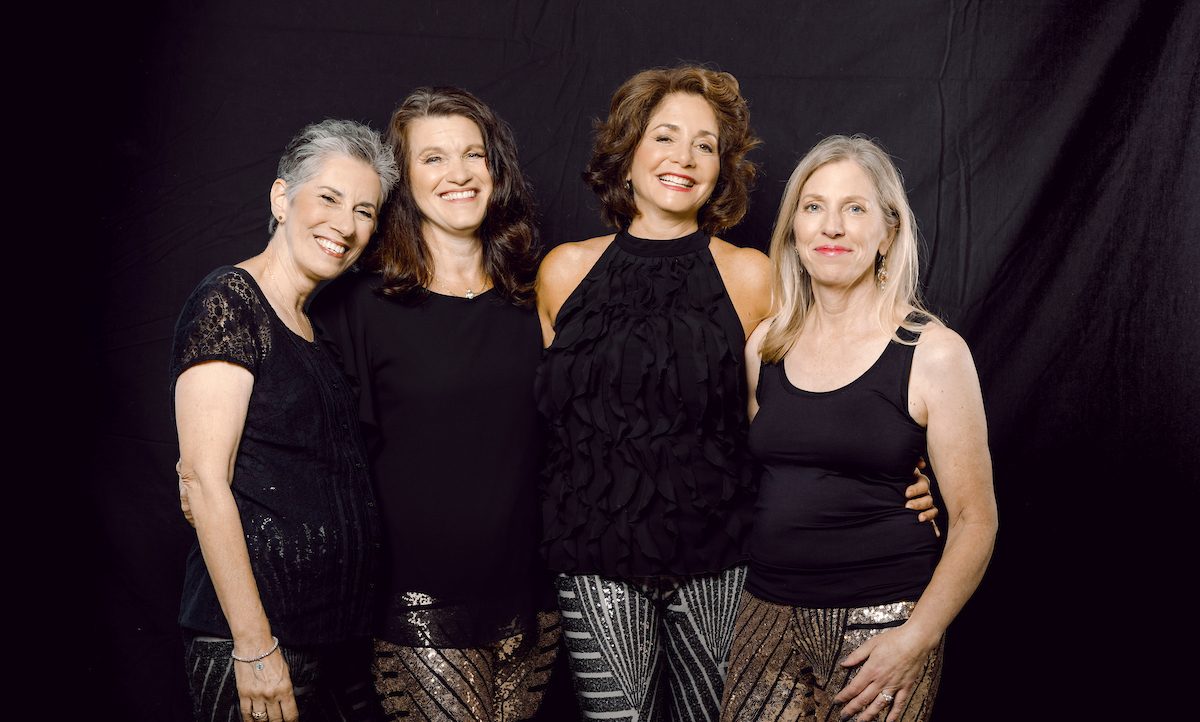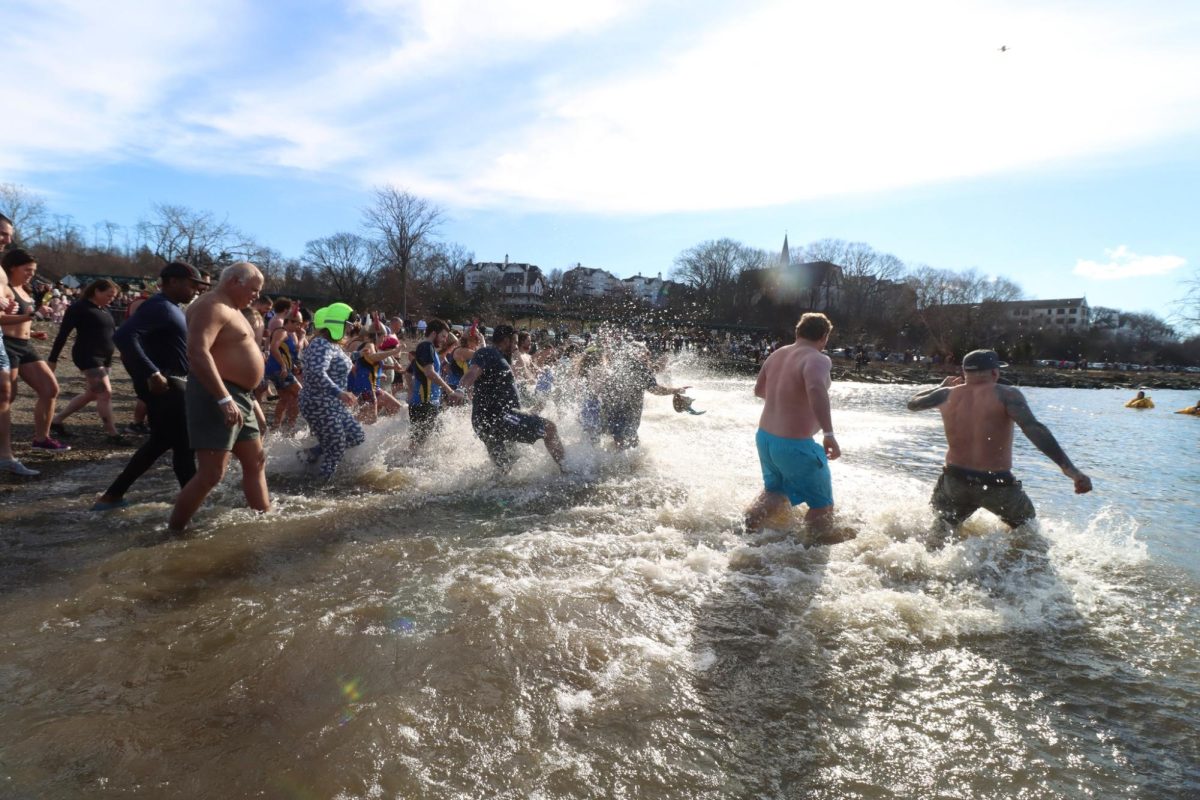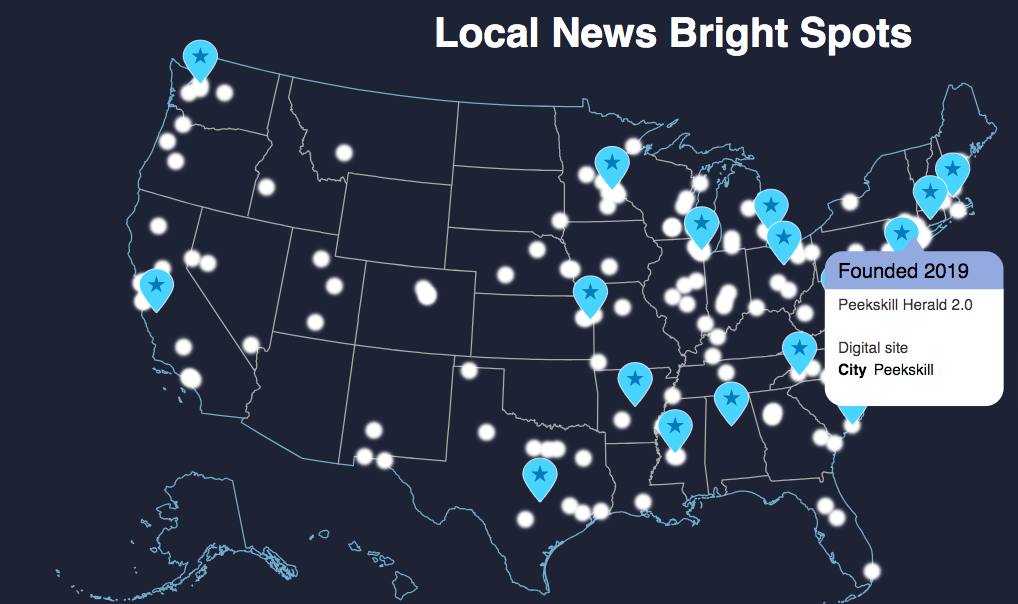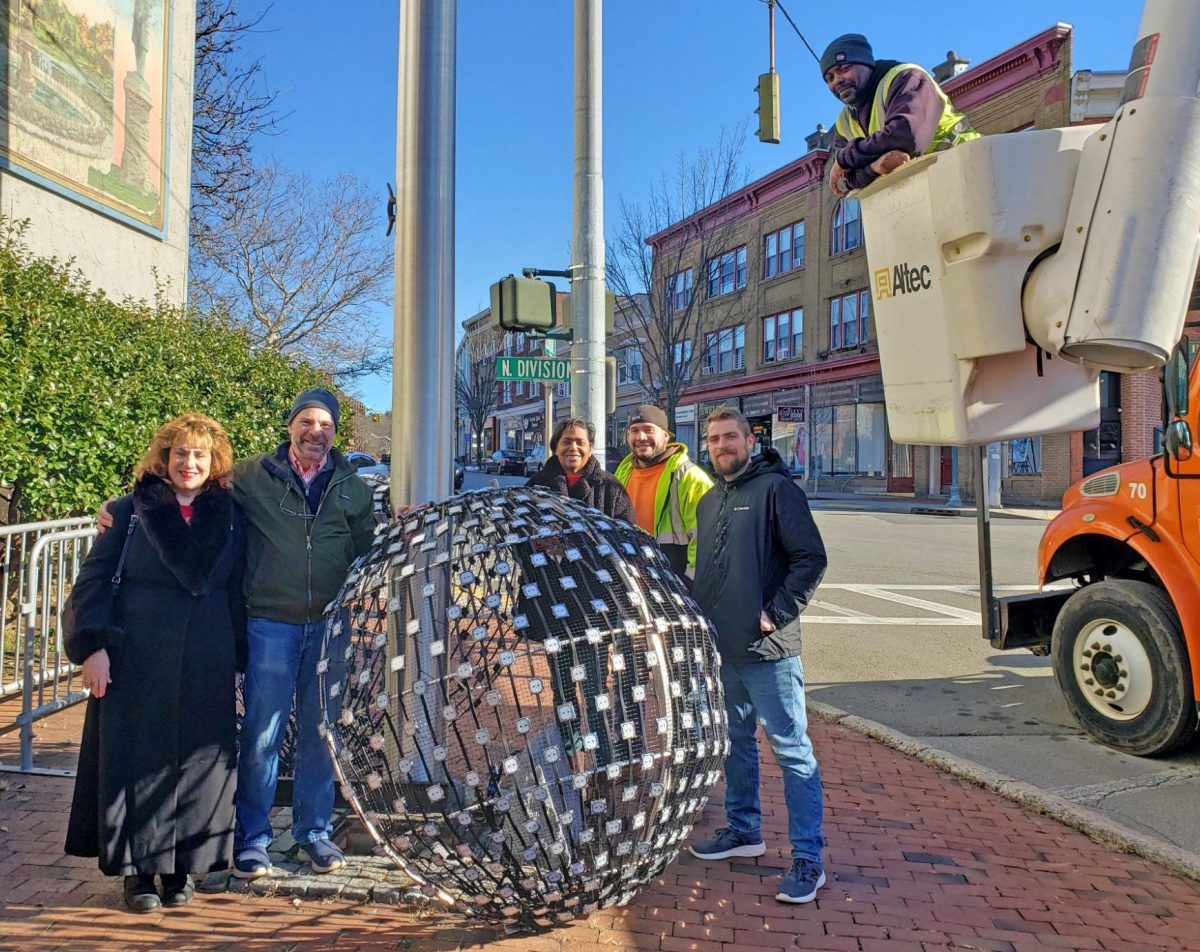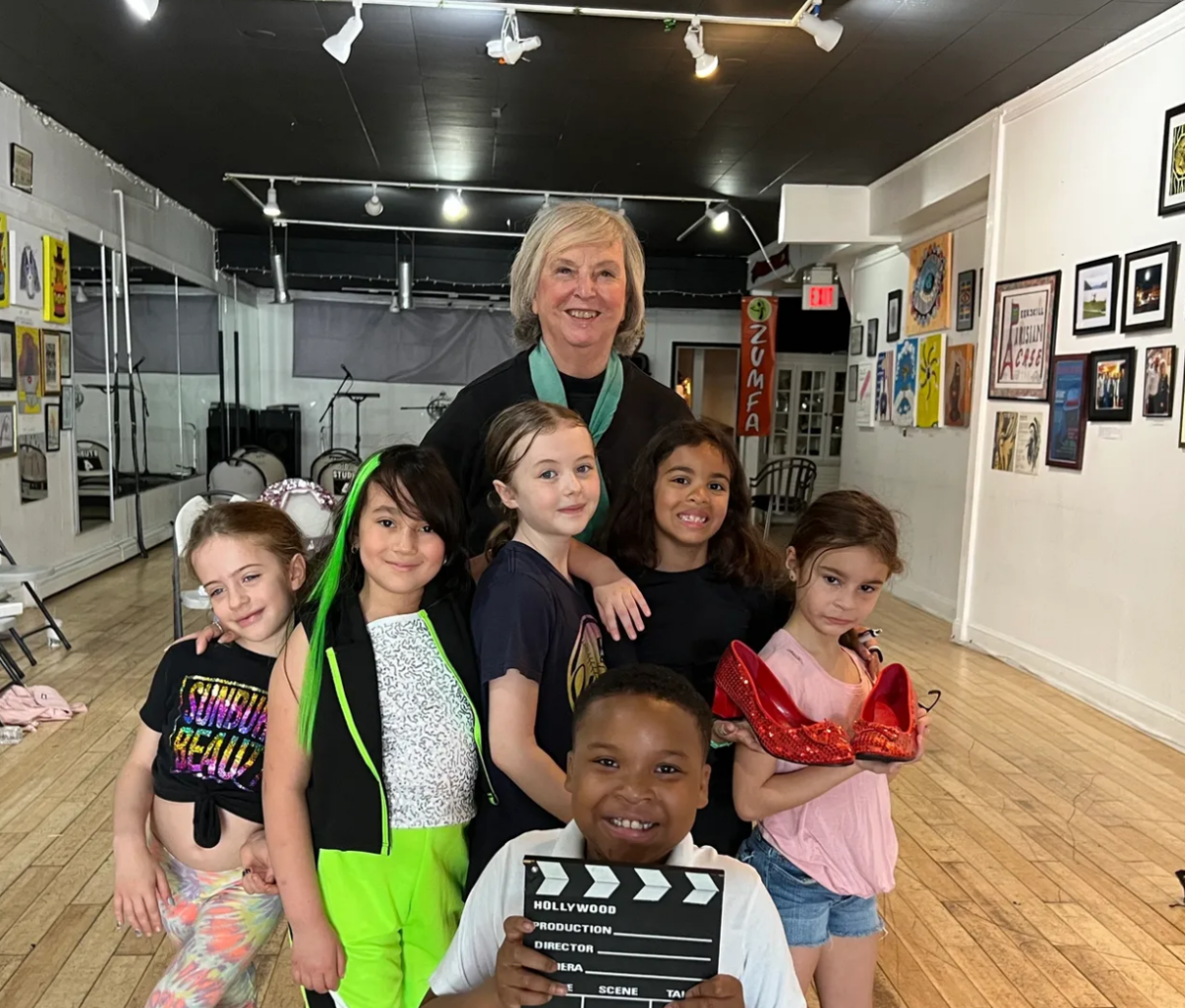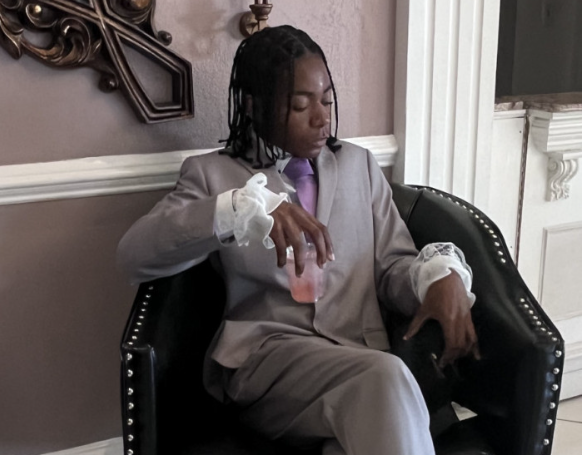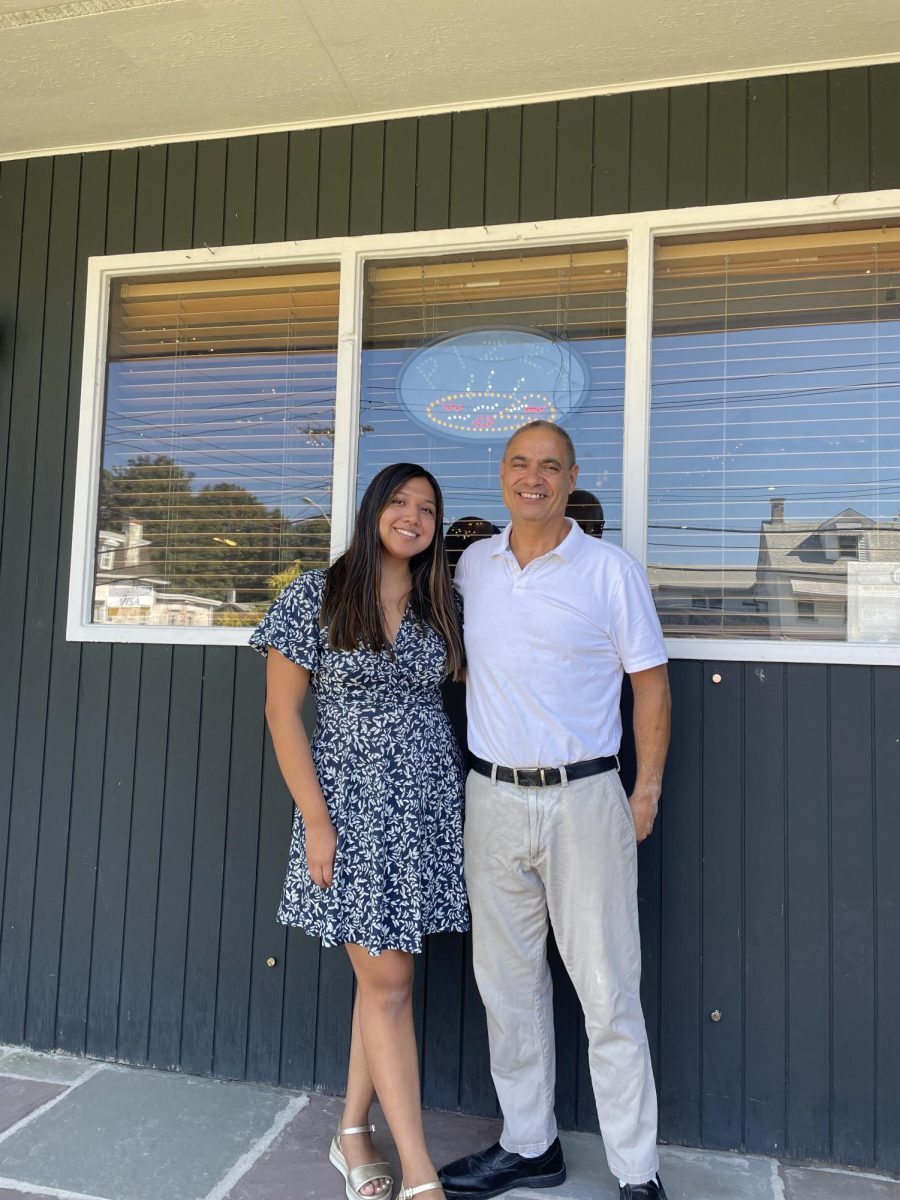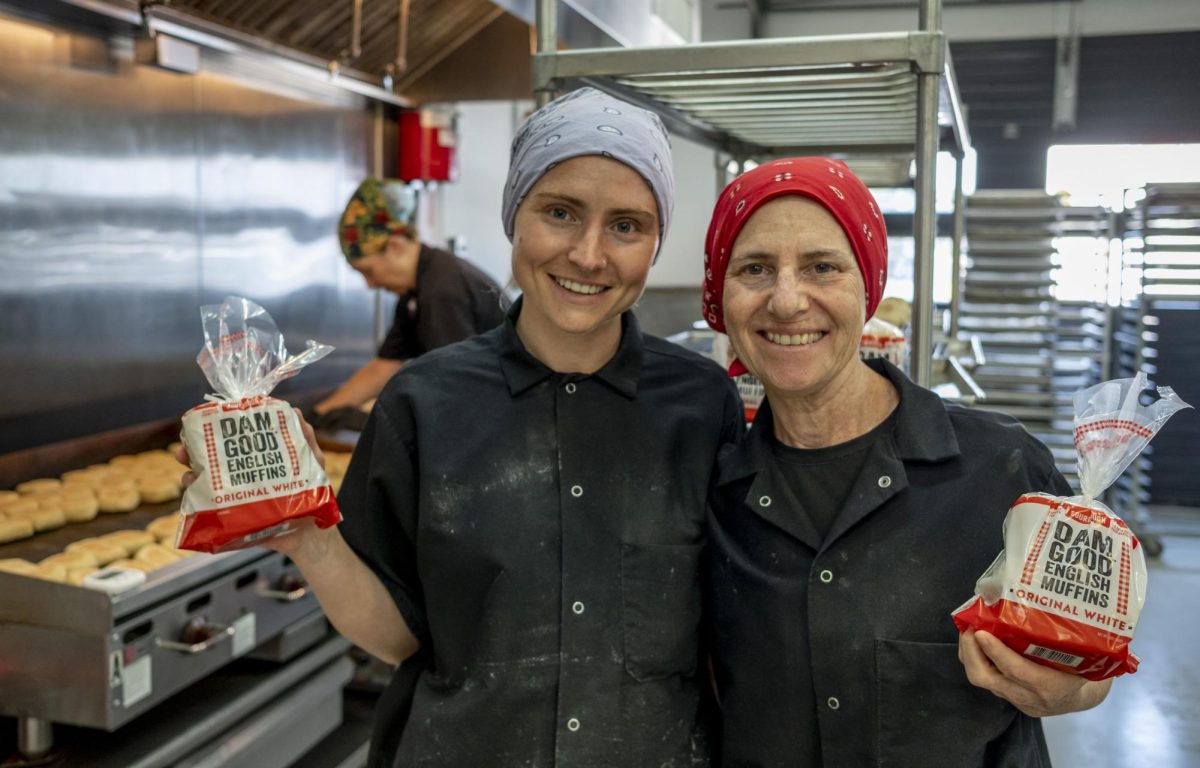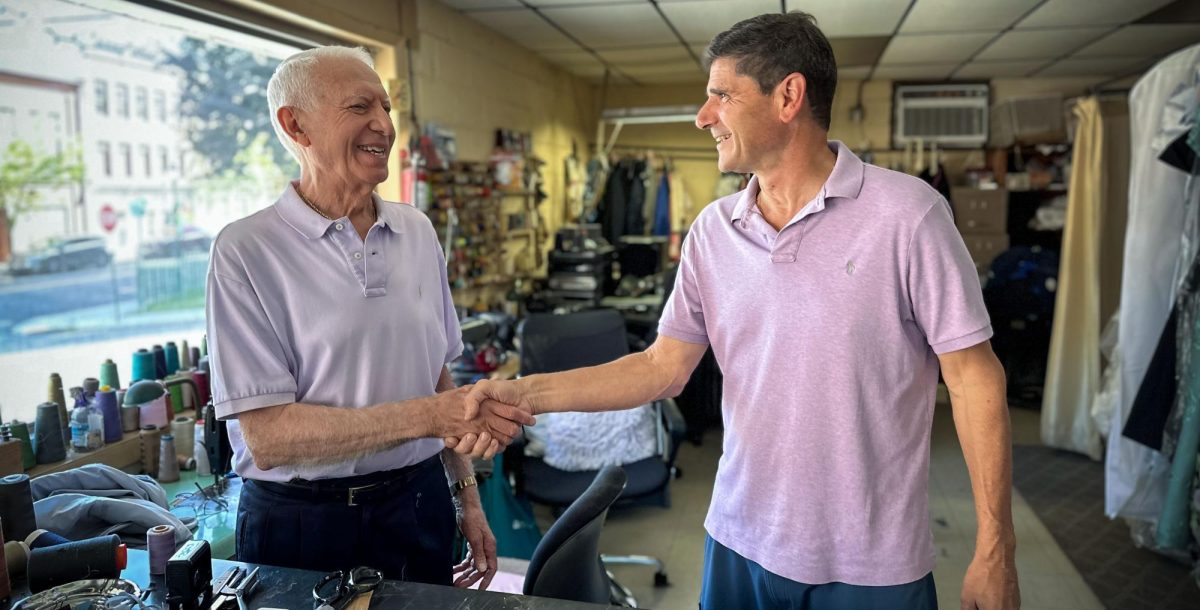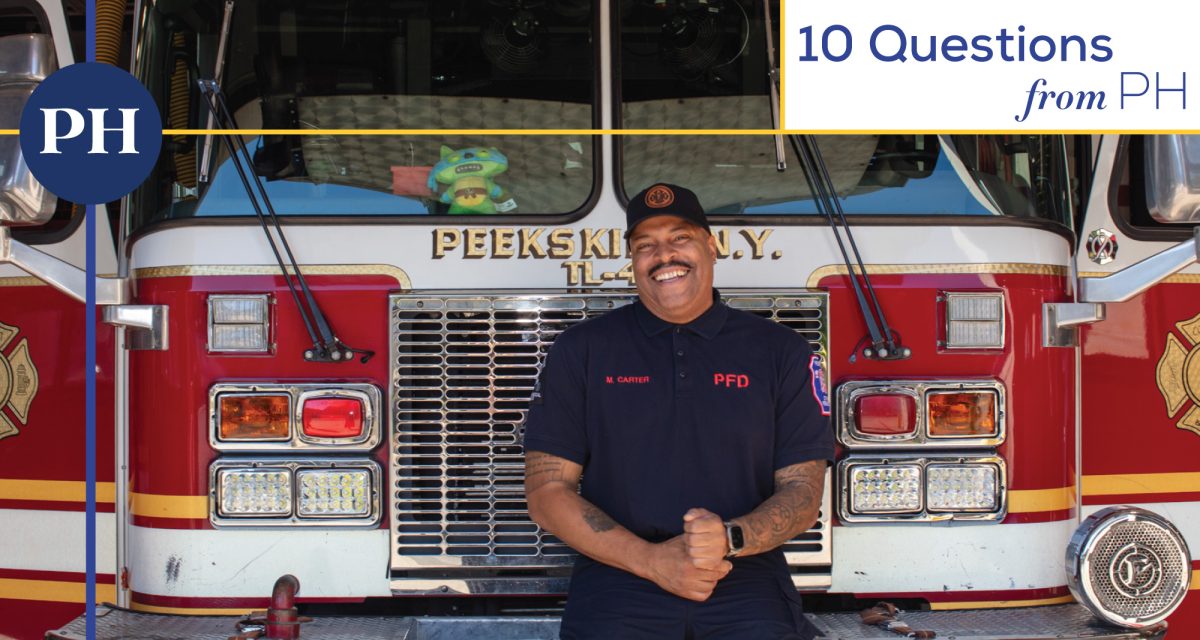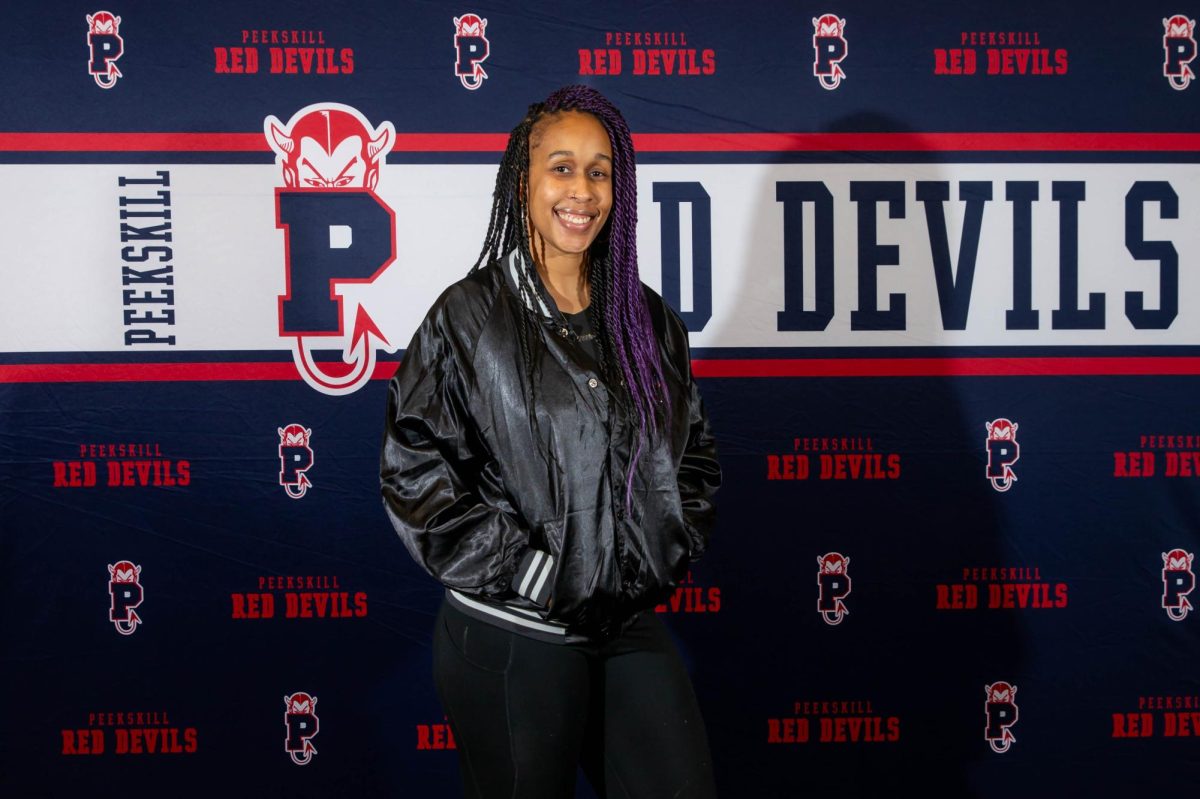Whether he’s behind a camera or a set of drums, Peekskill Today’s David Carbone is in command of the show. As the creator of the video production company that’s been documenting life in Peekskill for the last dozen years, Carbone uses every one of the skills he’s developed during a career in the music business, as a performer and a technician.
He’s ubiquitous; filming at parades, fires, swearing-in ceremonies, funerals, festivals, polar plunges, fire department training drills, ribbon cuttings, workers installing 5G cable – and even geese moving into the Hudson at Riverfront Green with his ‘gear’ as he calls it: cameras, tripods and boom mikes.
His video footage belies the fact that he’s a one-man operation. “I’m running my ass off to get the shots,” he said about all the angles he captures. He produces the music for each video, and estimates that he doubles the time he spends shooting footage in the music production and editing stages. “And 99.7 percent of the time, what goes up on Peekskill Today is what I’ve shot, cut and published that day. It’s literally what happened that day.”
The first time he experienced film making and holding an 8 millimeter motion picture camera was in his junior year at Peekskill High School in 1974, in the filmmaking class taught by Vincent Clarkin, who just happens to also be this writer’s father, “It was the first time I understood what a camera was and how to work as a team with other 16- and 17-year olds. The ideas came from everybody on the team so the films were very eclectic. To edit, we would cut the film with razors and tape it together. And we didn’t use techniques like panning and lighting, but what we learned was how to use the tools to bring a film into a finished product.”
Carbone’s first love was music; he was playing a snare drum his older brother set up for him when he was four years old. As he walked back and forth from Uriah Hill Elementary School to his home on Constant Avenue, he became aware of homes where people were playing instruments. “I would stop and listen and know that was what I wanted to do.” At age 8 he was hanging out with high school kids who were practicing, and soon they let him play the drums. As a self-described child prodigy on the drums, he was invited to join bands with much older students who were performing and getting paid for gigs.
It was 1972 and he was part of the first class of students to attend the newly constructed Peekskill High School at its location on Elm Street. He already knew how to play the drums without having taken band and orchestra like other kids. That’s largely because of the 11 years of drum lessons from the late Walter Piekartz, a Peekskill drum instructor. He wanted to know how to read and score music, so he began badgering Vincent Corazine, the legendary music teacher at the high school, to get up to speed with music theory and appreciation classes. Corazine agreed he could practice in the music room while taking the theory courses on the new upright pianos.
A career as a drummer in rock-n-roll
After high school he worked on the Broadway show “Rock’n Roll! The First 5,000 Years” and eventually found his way to California where he started writing and playing in bands. “It was where I learned how to cook by working in restaurants. I worked to survive and ended up living in my car.” Those were the years when bands such as Journey, Foreigner, Kiss, Mountain and Twisted Sister were on the rise as headliners – and Carbone was in the mix.
Missing the food in New York and getting tired of the Hollywood scene caused him to return to the area; he soon began working on radio shows, plays, modern dance and theater.
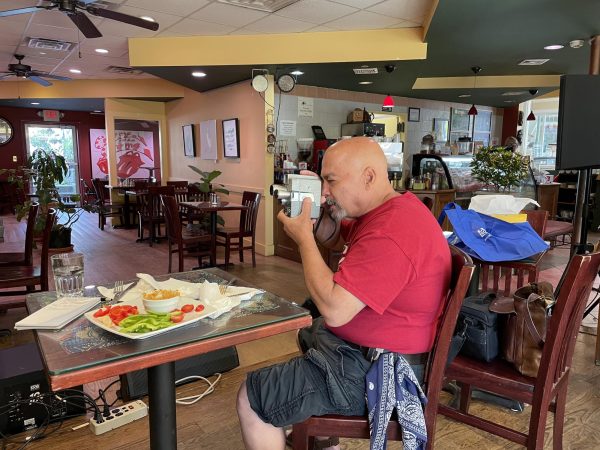
“I wasn’t a first call player, but I was called in by guys who were first call musicians.” In 1990, his son was born and he stopped playing gigs and began working in the technology aspect of the business. This was a transitional period in music and he started working with and testing high tech digital percussion equipment and demonstrating how the technology worked.
Continuing to work with musicians, he produced a platform called The NYC Subway Theater. A big hit, it held over 400 music videos mostly of street performers known as buskers. He was also a judge on the Music Under New York board, which gave permits to artists to perform in the subways. When the 2008 recession came, he stopped heading into Manhattan, and two years later Carbone retired The NYC Subway Theater platform.
The beginnings of Peekskill Today
In 2011 he was in the Bean Runner Cafe with only his iPad, because he was waiting for a new Sony camera to arrive. He proposed to Bean Runner’s proprietor Ted Bitter a video about the music acts that were coming to the Bean Runner.
“I took shots of the posters of the acts, or website screenshots; Ted narrated a little about each of the acts with a microphone rig Carbone created – and that was the first Peekskill Today video,” recalled Carbone in a recent interview with the Herald.
Curious about the social media platform Facebook, he was an early follower of the Peekskill Community Network group started by Leslie Lawler, and noticed how the number of followers to the site were increasing. He decided to only publish Peekskill Today on that group. He also noticed that other social media platforms had smaller audiences and (as he describes it), there were ‘cyber turf wars’.
Carbone reflected upon the early days of Peekskill Today; “They were rocky and in many ways discouraging. I was writing nearly all of the music, playing all the instruments, shooting all the footage and editing to put out a completed original project. It was more work than worth the time.”
He took a break from producing for about six months but then he heard from Lawler about the number of views his older material was receiving.
“She encouraged me to reconsider my decision to stop producing Peekskill Today.”
Lawler said she told him that his pieces had real merit. “You have a niche here in Peekskill,” she related to the Herald about Carbone. “You’ve got to keep at it despite the negativity,” she told him.
“He is one of the many unsung heroes. He does them all on his own at his own expense. What he does is important, is needed and appreciated,” said Lawler.
He realized his heart was still in the city. “I did a few profiles of mom and pop businesses – and the exposure they received from the video helped them, and that felt good.”
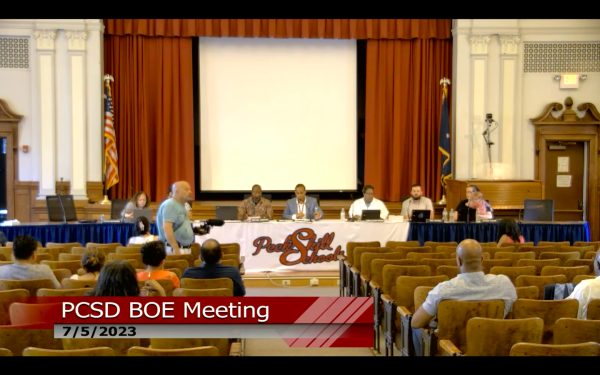
“I was buying new gear and the passion came back to resurrect Peekskill Today.” There were new cameras and software editing tools that were more user friendly, the workflow got faster and the projects became more professional. “Today the computer power is incredible, and resolution in cameras is a far cry from what it was ten years ago,” explained Carbone.
The eclectic documenting of Peekskill
The passion that motivated Carbone to pick up his cameras again continues to animate his work a dozen years later. It’s evident in the footage. He points to the funeral of Police Officer Greg Jones as an example. “People asked me if there was more than one person shooting that day.” There weren’t, but years in the business taught Carbone how to be on the lookout for shots. “I can time things, I can read body language. I knew there would be a salute coming up and I knew I had to be there when that salute dropped,” recalled Carbone.
He used an example to illustrate how it all comes together. “People will say ‘Grandma, how did you make that sauce, it’s so great?’ and she’ll reply, ‘a little of this, a pinch of that,’ It’s all in the feeling, done from the heart. That’s what a veteran is,” said Carbone about the work he creates.
He’s proud of footage shot this year around Memorial Day at the cemeteries on Oregon Road where members of Peekskill’s service communities place American flags on the graves of war veterans. He was there when researchers discovered graves of members of the Women’s Relief Corps of 1812 and again when they discovered the graves of Vietnam War veterans.
Carbone is passionate about the fight to save the Hudson River from the discharge of a million gallons of tritium-contaminated water from the decommissioning of the Indian Point nuclear power plant. He’s filmed concerts at the Cortlandt Waterfront, and documented the fight to keep the radioactive water out of the river.
“You can’t follow your path if your path is money. Money is not a path,” said Carbone when summing up what propels him to create videos that chronicle life in Peekskill.
In addition to Peekskill Today, he runs World Wide Watching production company, offering three cameras, live streaming, documentary, music sound tracks, and film production.
A dozen years after picking up his cameras for the second time, Carbone has some 4,000 followers and hundreds of posts with millions of views. That body of work is a testament to his dedication, perseverance and love of Peekskill.




